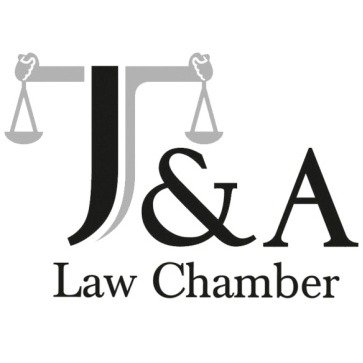Best Banking & Finance Lawyers in Tanzania
Share your needs with us, get contacted by law firms.
Free. Takes 2 min.
Or refine your search by selecting a city:
List of the best lawyers in Tanzania
About Banking & Finance Law in Tanzania
Banking and finance law in Tanzania governs the activities of financial institutions, their interactions with clients, and the execution of financial transactions. This field of law is crucial for ensuring the stability and integrity of the financial system. Tanzania's banking sector has seen significant growth, driven by economic reforms and technological advancements. The regulatory framework is designed to ensure financial stability, protect consumers, and promote fair competition.
Why You May Need a Lawyer
There are several scenarios where individuals and businesses might require legal assistance in the banking and finance sector:
- Loan Agreements: Understanding complex loan terms and ensuring they are fair can require legal expertise.
- Regulatory Compliance: Financial institutions need to comply with various regulatory requirements. Lawyers can help in navigating these legal waters.
- Dispute Resolution: Legal disputes can arise from banking transactions; professional legal advice can aid in their resolution.
- Fraud and Financial Crimes: Legal intervention may be necessary when dealing with cases of fraud or financial crimes.
- Corporate Finance: Companies engaging in mergers, acquisitions, or restructuring often need legal counsel to manage financial risks effectively.
Local Laws Overview
Banking and finance in Tanzania are regulated by various laws and acts, including:
- The Bank of Tanzania Act: Establishes the Bank of Tanzania as the central bank and outlines its duties and powers.
- The Banking and Financial Institutions Act: Governs the licensing and regulating of banking and financial institutions.
- The Foreign Exchange Act: Regulates the conduct of foreign exchange in Tanzania.
- The Anti-Money Laundering Act: Sets the framework for detecting and preventing money laundering activities.
Frequently Asked Questions
What is the role of the Bank of Tanzania?
The Bank of Tanzania acts as the central bank, responsible for issuing currency, regulating banks, conducting monetary policy, and ensuring financial stability.
How can I resolve a dispute with my bank?
You can start by contacting the bank's customer service for resolution. If unsatisfied, you can seek assistance from the Bank of Tanzania's consumer complaints division or seek legal action.
Are electronic transactions legally recognized?
Yes, electronic transactions are legally recognized under the Electronic Transactions Act, ensuring their safety and authenticity.
What should I know before taking a loan?
It's essential to understand the terms, interest rates, and repayment conditions. A lawyer can help review the agreement to ensure fairness and compliance with the law.
What is money laundering, and is it illegal?
Money laundering is the process of disguising illegal funds to appear legitimate. In Tanzania, it is illegal and punishable under the Anti-Money Laundering Act.
Who ensures consumer protection in the banking sector?
The Consumer Protection Act and regulations by the Bank of Tanzania ensure consumer rights in the banking sector are protected.
What are the penalties for non-compliance with banking regulations?
Penalties can range from fines to revocation of licenses, depending on the severity of the non-compliance.
Can foreigners open bank accounts in Tanzania?
Yes, foreigners can open bank accounts in Tanzania, subject to fulfilling specific documentation requirements.
What is the process for reporting bank fraud?
Fraud should be reported immediately to your bank and the law enforcement authorities. The Bank of Tanzania also provides a platform for reporting financial fraud.
Is banking information confidentiality protected?
Yes, banks are required to ensure the confidentiality of client information, in line with the Banking and Financial Institutions Act.
Additional Resources
Here are some critical resources and organizations for banking and finance legal matters in Tanzania:
- Bank of Tanzania (BoT): For regulatory guidelines and consumer protection resources.
- Tanzania Bankers Association (TBA): Offers support and information on banking industry standards.
- Tanzania Revenue Authority (TRA): Provides guidance on tax implications for financial transactions.
Next Steps
If you require legal assistance in banking and finance, consider the following steps:
- Identify Your Needs: Determine the specific legal assistance you need.
- Research Lawyers and Firms: Look for legal professionals specializing in banking and finance law.
- Consultation: Arrange for an initial consultation to discuss your situation and explore your options.
- Documentation: Gather all relevant documents before meeting with legal counsel for an efficient session.
By following these steps, you can ensure that you are well-prepared and informed in your search for legal assistance in banking and finance law in Tanzania.
Lawzana helps you find the best lawyers and law firms in Tanzania through a curated and pre-screened list of qualified legal professionals. Our platform offers rankings and detailed profiles of attorneys and law firms, allowing you to compare based on practice areas, including Banking & Finance, experience, and client feedback.
Each profile includes a description of the firm's areas of practice, client reviews, team members and partners, year of establishment, spoken languages, office locations, contact information, social media presence, and any published articles or resources. Most firms on our platform speak English and are experienced in both local and international legal matters.
Get a quote from top-rated law firms in Tanzania — quickly, securely, and without unnecessary hassle.
Disclaimer:
The information provided on this page is for general informational purposes only and does not constitute legal advice. While we strive to ensure the accuracy and relevance of the content, legal information may change over time, and interpretations of the law can vary. You should always consult with a qualified legal professional for advice specific to your situation.
We disclaim all liability for actions taken or not taken based on the content of this page. If you believe any information is incorrect or outdated, please contact us, and we will review and update it where appropriate.
Browse banking & finance law firms by service in Tanzania
Tanzania Attorneys in related practice areas.
Browse banking & finance law firms by city in Tanzania
Refine your search by selecting a city.










